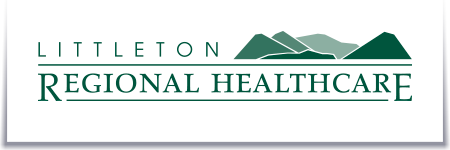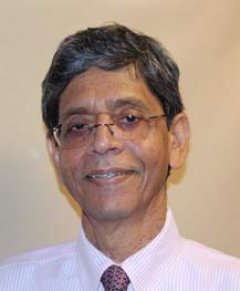Cardiac Lab care at Littleton Regional Healthcare provides the highest level of customer service.
We are patient-focused, attempting to help each patient through their cardiac tests in any way we can. We offer state-of-the-art equipment to treat more than 600 patients in our cardiac diagnostic lab each year.
Telephone: 603-444-9387
Some of the most common cardiac lab procedures we offer include:
- Exercise Treadmill Test
- Exercise Myocardial Perfusion Stress Test ( aka exercise Sestamibi)
- Dobutamine Sestamibi
- Lexiscan Sestamibi, which replaced the “Adenosine Sestamibi” protocol recently
- Pacemaker programmed Lexiscan stress SestaMIBI
- Exercise Stress Echocardiogram (utilizing the Bicycle Ergometer Bed)
- Dobutamine Stress Echocardiogram.
- Contrast ECHO perfusion scan
- Contrast bubble study for intracardiac shunt
- Diastolic Stress ECHO testing for diastolic heart failure.
- Tilt Table Test (useful in the diagnosis of fainting or passing out)
- Transesophageal echocardiogram (TEE )
- TEE-guided cardioversions for atrial fibrillation
- Cardioversion for atrial fibrillation and atrial flutter.
- Pacemaker programming and interrogation.
- Pacemaker implantation
We do several EKGs for area physicians and are responsible for the application and scanning of 24-hour Holter monitoring for patients at Littleton Regional Healthcare. We offer these tests to assist your physician in the diagnosis of coronary heart disease. At LRH patients do not have to wait because most tests can be performed within 24 to 48 hours of physician referral.
Our Echo Lab is one of only a handful of Echo Labs in NH that has received accreditation with the Intersocietal Commission for the Accreditation of Echocardiography Laboratories.
Our 24-hour Holter monitoring is available to outpatients so that your physician can determine if there are any cardiac rhythm abnormalities during a 24-hour period.
Our outpatient Electrocardiogram (EKG) takes pictures of the electrical activity of the heart.
We feel it is our privilege to work very closely with the 2 cardiologists affiliated with LRH. This includes scheduling patients and coordinating appointments with the cardiologists’ offices and contacting our patients before their tests so we can go over instructions, obtain basic information, and answer questions they may have. We are proud that our three cardiac physicians are certified as Fellows of the American College of Cardiology.
The Cardiac Lab Services Department at LRH also provides cardiac ‘event’ monitors, worn by patients during their regular daily activities. The monitors are worn for at least 30 days to record Electrocardiogram (ECG) data related to intermittent symptoms.
LRH has contracted with First Call Medical to receive recorded ECG data via telephone, from each patient being treated in the Cardiac Lab. The patients’ ECG data is conveniently able to be transferred 24 hours per day, 365 days per year.
- Exercise Treadmill Test
- Exercise Myocardial Perfusion Stress Test ( aka exercise Sestamibi)
- Dobutamine Sestamibi
- Lexiscan Sestamibi, which replaced the “Adenosine Sestamibi” protocol recently
- Exercise Stress Echocardiogram (utilizing the Bicycle Ergometer Bed)
- Dobutamine Stress Echocardiogram
- Tilt Table Test (useful in the diagnosis of syncope)
- And the newest test here at LRH, known as the Coronary CTA or Cardiac Cat Scan.
Excercise Stress Echo
The video shows the “older” protocol using a treadmill, at LRH we use a Bicycle Ergometer Bed which yields better information for the cardiologist.
Exercise Nuclear Stress Test
Known here at LRH as the Exercise mibi, “sestamibi” is the trade name of the isotope we use for our patients.
Dobutamine Nuclear Stess Test (Dobutamine mibi)
Adenosine Nuclear Stress Test
- An adenosine nuclear stress test is usually performed in patients who need a stress test but are unable to walk quickly on a treadmill.
- Adenosine dilates heart arteries and increases flow within them. This mimics what happens to the heart arteries during exercise.
- A nuclear test uses a small dose of a radioactive solution to track blood flow to the heart muscle, and to evaluate heart function.
- An adenosine nuclear stress test can provide information regarding whether or not significant blockages are present in your heart arteries and if there has been any previous heart muscle damage.
Exercise Treadmill Test – Stress test
Some heart problems are easier to diagnose when your heart is working harder and beating faster than when it’s at rest. During stress testing, you exercise (or are given medicine if you are unable to exercise) to make your heart work harder and beat faster while heart tests are performed.
Coronary CTA (cardiac CAT scans)
The CTA test uses a special high-tech x-ray scanner aided by dye injected into a small I.V. This entirely noninvasive procedure, which takes less than one minute, produces computerized pictures of the heart arteries.
Tilt Table Test
This test is sometimes used to help determine the cause of fainting spells. You lie on a table that moves from lying down to an upright position. The change in position can bring on loss of consciousness. The doctor monitors your symptoms, heart rate, EKG, and blood pressure throughout the test. The doctor also may give you medicine and then monitor your response to the medicine.
Holter Monitor Procedure -Holter monitor
This device records the heart’s electrical activity continuously over a 24-hour period.
Cardio Smart Videos
These videos explain some of the various tests conducted at LRH by our Cardiac Lab staff and your physician. Although different facilities, including LRH, have different routines and procedures, based on your physician’s preferences these videos will allow you to view a typical patient experience.








